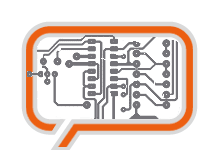A weblog focused on interesting circuits, ideas, schematics and other information about microelectronics and microcontrollers.
E-books
Disclaimer
Because I have not tested all electronic circuits mentioned on this pages, I cannot attest to their accuracy; therefore, I do not provide a warranty of any kind and cannot be held responsible in any manner.
Microchip announces new chips
Some new products from Microchip.
Microchip Technology Inc. today announced the 25AA1024 and 25LC1024 (25XX1024) the fastest (20 MHz) 1 Megabit (Mb) serial EEPROM devices in the industry. The Company also announced the 25AA128, 25LC128, 25AA512 and 25LC512 (25XX128/512) 128 Kbit and 512 Kbit devices today, meaning Microchip now provides serial EEPROMs across the entire SPI memory-density range (1 Kbit 1 Mbit).
Microchip Technology Inc. also announced the 24XX1025 I2C™ serial EEPROM family of devices with 1 Mbit of memory – the highest memory density available for I2C serial EEPROM devices. Based upon Microchip’s advanced PMOS Electrically Erasable Cell (PEEC) process technology, the 24XX1025 serial EEPROMs give designers working with I2C buses the freedom to add more memory to their system without major hardware or layout modifications.
Once more Microchip: Microchip Technology Inc. announced four new Flash 8-bit PIC® microcontrollers, which offer a cost-effective and code-compatible migration path from existing 8- and 14-pin package options to 20-pin microcontrollers with a richer set of peripherals. These new microcontrollers provide engineers with enhanced features such as steering-capable pulse-width modulation (PWM) and a synchronous serial port with address-masking for I2C™, while offering additional program and data memory.
Microchip’s new PIC16F685/687/689/690 comes with smaller 4x4 QFN package options, easy migration from other PIC microcontrollers to shorten the design time, and several new enhancements to increase functionality while reducing total system cost. The four new microcontrollers also incorporate Microchip’s nanoWatt Technology features for more control over the power consumption of the microcontroller.
